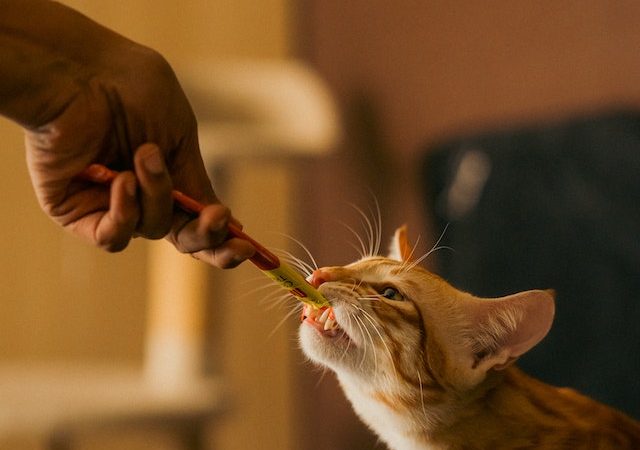Introduction: It can be incredibly distressing when your beloved cat refuses to eat. A loss of appetite in cats can be caused by various factors, and finding ways to entice them to eat again requires patience and understanding. In this article, we will provide you with helpful tips and tricks to encourage your cat to
Introduction: It can be incredibly distressing when your beloved cat refuses to eat. A loss of appetite in cats can be caused by various factors, and finding ways to entice them to eat again requires patience and understanding. In this article, we will provide you with helpful tips and tricks to encourage your cat to start nibbling again and ensure their nutritional needs are met.
- Ensure a Calm and Comfortable Feeding Environment: Create a peaceful and quiet space for your cat’s meals. Minimize distractions and provide a safe area where they feel secure. Cats are often more inclined to eat when they feel relaxed and undisturbed during feeding time.
- Offer Different Food Options: Experiment with different brands, flavors, and textures of cat food to find what entices your cat’s taste buds. Some cats prefer wet food over dry food, while others may have specific flavor preferences. Rotate between a variety of options to keep their interest piqued.
- Warm Up the Food: Warming your cat’s food to slightly above room temperature can enhance its aroma and make it more appealing. Heating it for a few seconds in the microwave or adding warm water can release enticing scents that may stimulate your cat’s appetite.
- Try Hand-Feeding or Interactive Feeders: In some cases, hand-feeding your cat can help entice them to eat. Use your fingers or a spoon to offer small portions of food directly to your cat’s mouth. Additionally, interactive feeders or food puzzles can make mealtime more engaging, encouraging them to eat while engaging their natural hunting instincts.
- Maintain a Regular Feeding Schedule: Establishing a consistent feeding routine can help regulate your cat’s appetite. Offer meals at the same times each day, and avoid leaving food out for long periods, as it may become stale or unappetizing. Stick to a schedule to ensure your cat knows when to expect their meals.
- Consult with Your Veterinarian: If your cat’s lack of appetite persists or is accompanied by other concerning symptoms, it is crucial to seek veterinary advice. Your veterinarian can examine your cat, perform necessary tests, and provide tailored recommendations based on their health condition.
- Monitor Water Intake: Proper hydration is essential for your cat’s overall health and appetite. Ensure fresh water is available at all times, and consider offering wet food or adding water to their meals to increase their fluid intake.
Conclusion: When your cat refuses to eat, it’s essential to be patient and try various techniques to encourage their appetite. Creating a calm environment, offering different food options, warming the food, hand-feeding, using interactive feeders, maintaining a regular feeding schedule, and monitoring water intake are all helpful strategies. Remember to consult with your veterinarian if the issue persists or worsens. By being attentive and proactive, you can help your cat regain their appetite and ensure their well-being.

















Leave a Comment
Your email address will not be published. Required fields are marked with *